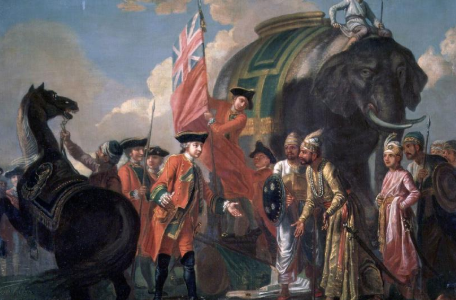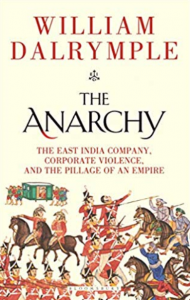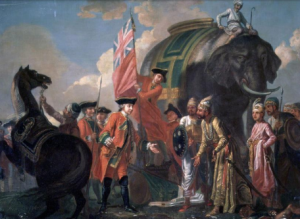
How a Piratical corporation vanquished India?



The remarkable story one of the world’s most magnificent empires disintegrated and came to be replaced by the supreme act of corporate violence by a dangerously unregulated private company based thousands of miles away and answerable only to its shareholders.
The East India Company, a joint stock organisation founded by a motely bunch of explorers and adventurers to trade the world’s riches, driven by Protestant England’s break with largely Catholic continental Europe. Little did they know when the Red Dragon slipped anchor at Woolwich in 1601 to exploit the new royal charter granted to the East India Company, the ship lay becalmed off Dover for two months before reaching the Indonesian sultanate of Aceh and seizing pepper, cinnamon and cloves from a passing Portuguese vessel.
“Isolated from their baffled neighbours, the English were force to scour the globe for new markets and commercial openings further afield. This they did with piratical enthusiasm”, stated by William Dalrymple’s new book The Anarchy: The East India Company, Corporate Violence and the Pillage of an Empire”. The books charts the 18-century triumph and then fall of the company, and its role in founding what became Queen Victoria’s Indian Empire is an astonishing story. Similar to current Brexit situation Great Britain is now experiencing, East India Company then grew into an enterprise that was never been replicated – a business with its own 260, 000 strong army that conquered swaths in India, seizing minerals, jewels and the wealth of Mughal Emperors, like mercenary globalisation, practised by what the philosopher Edmund Burke called “a state in the guise of a merchant”.
Dalrymple, an historian who lives in India, brings deep insight into the world’s largest corporation with ravaging territorial appetites of the militarised East India Company.
In the early days giving up on competing with the entrenched Dutch East India Company in the Spice Islands, and instead of specialising in cotton and calico from India, and accidental strategy , it introduced early officials like Thomas Roe to “ a world of almost unimaginable splendour” in India run by the cultured Mughals.
The Nawab of Bengal called the English “a company of base, quarrelling people and foul dealers and “they live like Englishmen and die like rotten sheep” although the company had adaptiveness and energy of capitalism.
When East India Company stopped negotiations with the Mughals and went to war the battle of Buxar in 1764, “ the English gentlemen took off their hats” to clap the defeated Shuja ud-Daula, before reinstalling him as a tame ruler, backed by the company’s Indian troops and paying it a huge subsidy.
Robert Clive a curt, withdrawn and socially awkward young accountant whose risk taking and aggression paid dividends and secured crucial military victories for the Company.
The Great Bengal famine in 1770 soon led to unease in London at its methods “ We have murdered, deposed, plundered , usurped” wrote Whig politician Horace Walpole to which Clive protested and said “ I stand astonished by my own moderation and after the outrage the company had to be bailed out by the British Government in 1772. Clive took his own life in disgrace and Warren Hastings, was first made governor general of India and later impeached.
“ In truth, I love India a little more than my own country” wrote Hastings, who spoke good Bengali and Urdu and Persian.
At his public impeachment in 1788, Burke said “We have brought before you, one in whom all the frauds, all the peculation, all the violence, all the tyranny in India are embodied”.
Although they got the wrong man, and by the time he was cleared in 1795, the British state was steadily absorbing the Company denouncing its methods, but retaining many of its assets.” That brought an end to a era when almost all of India south of Delhi was ruled by a handful of businessmen from a boardroom in the City of London.
The Anarchy: The East India Company, Corporate Violence and the Pillage of an Empire by William Dalrymple, Bloomsbury £30/$35, 544 pages.
